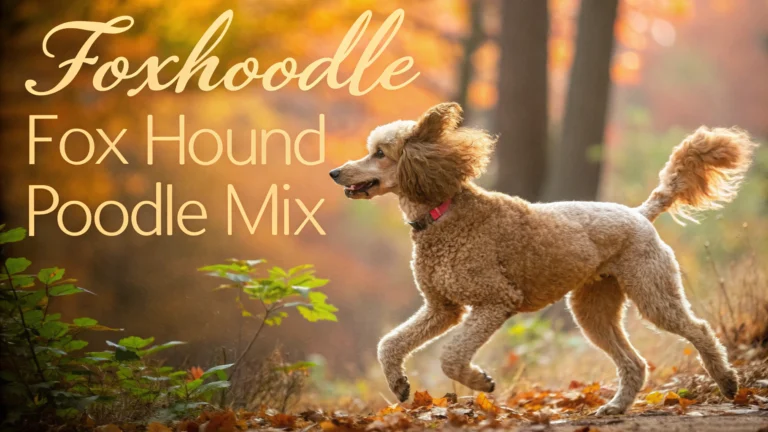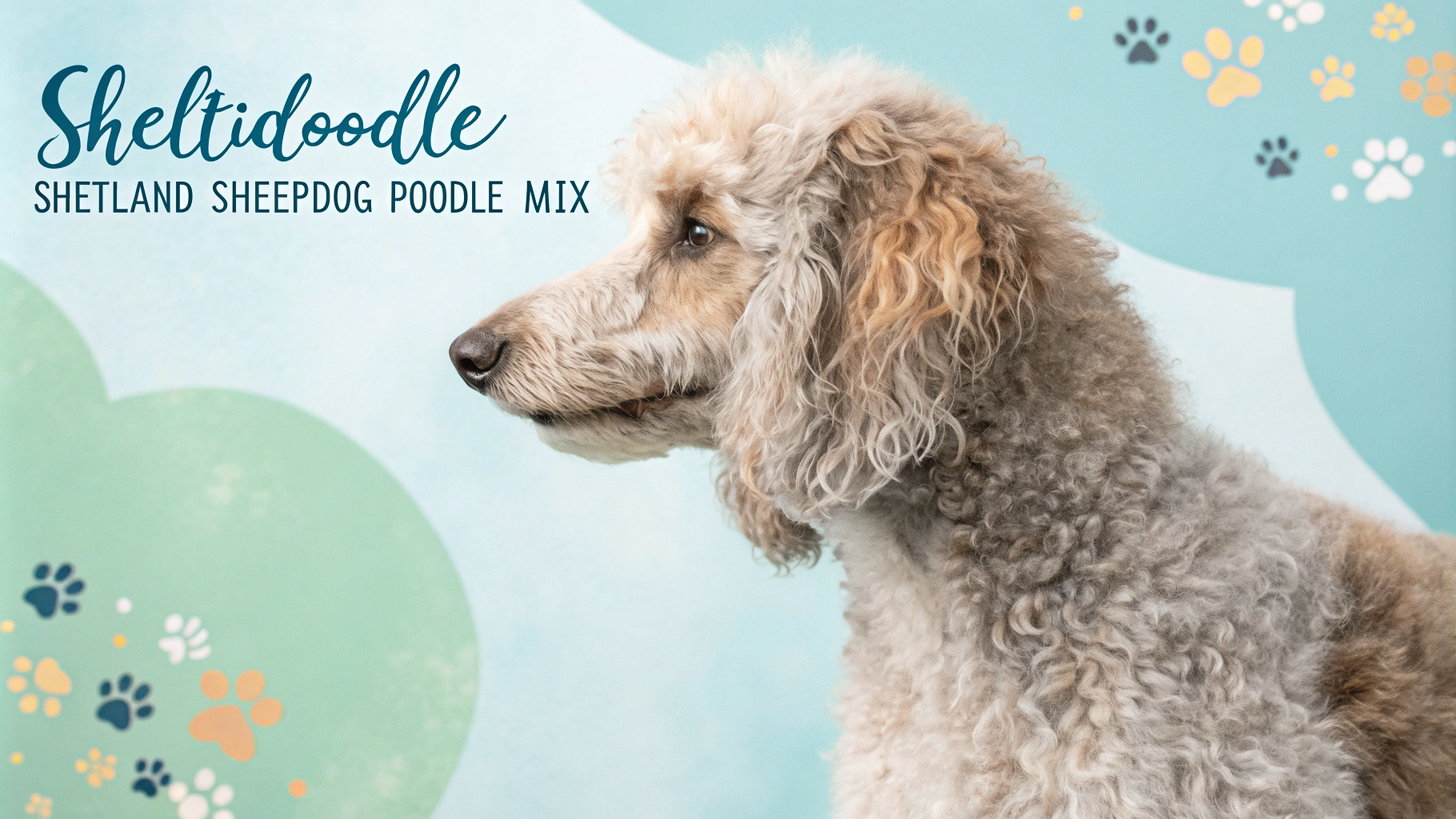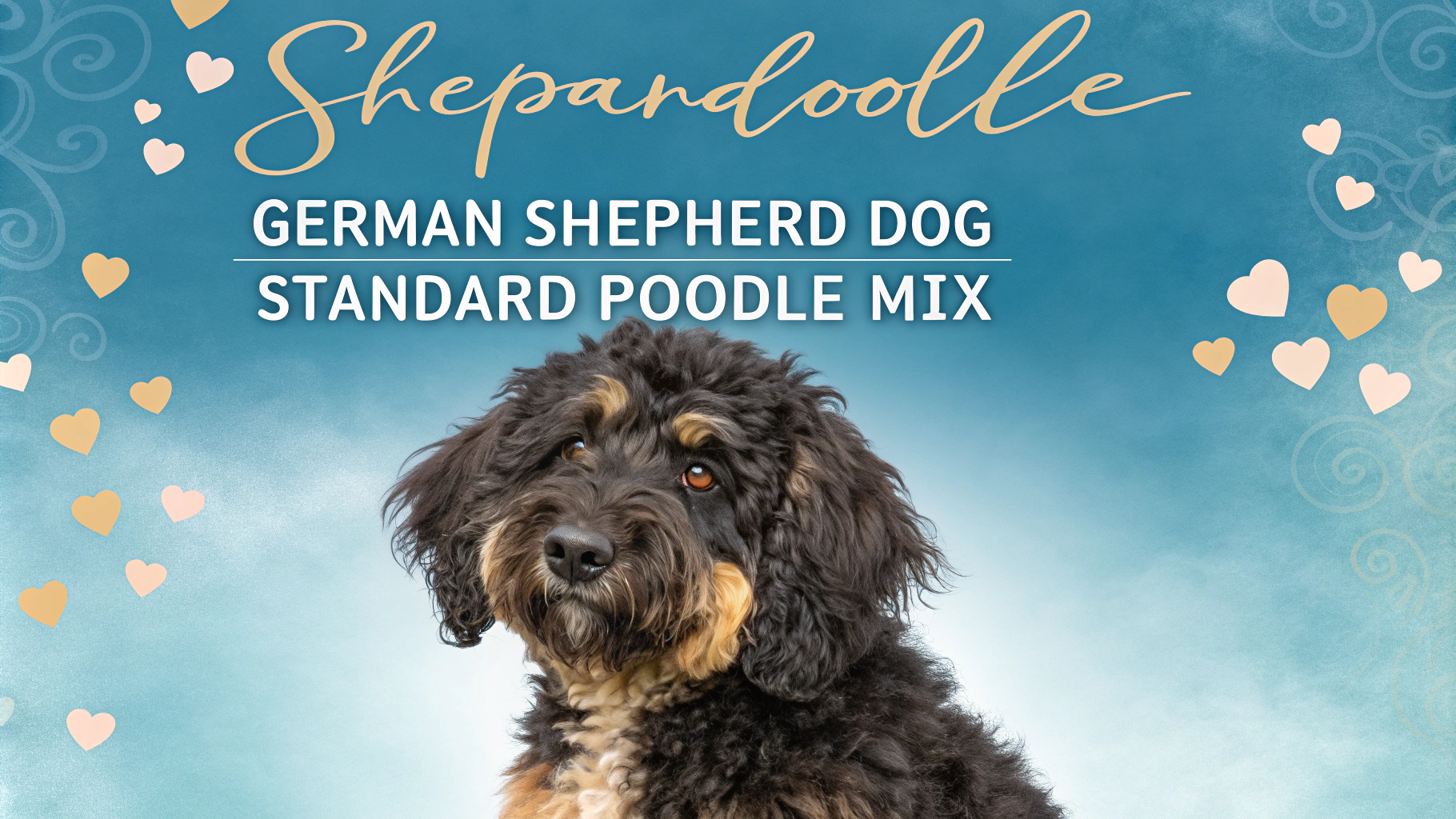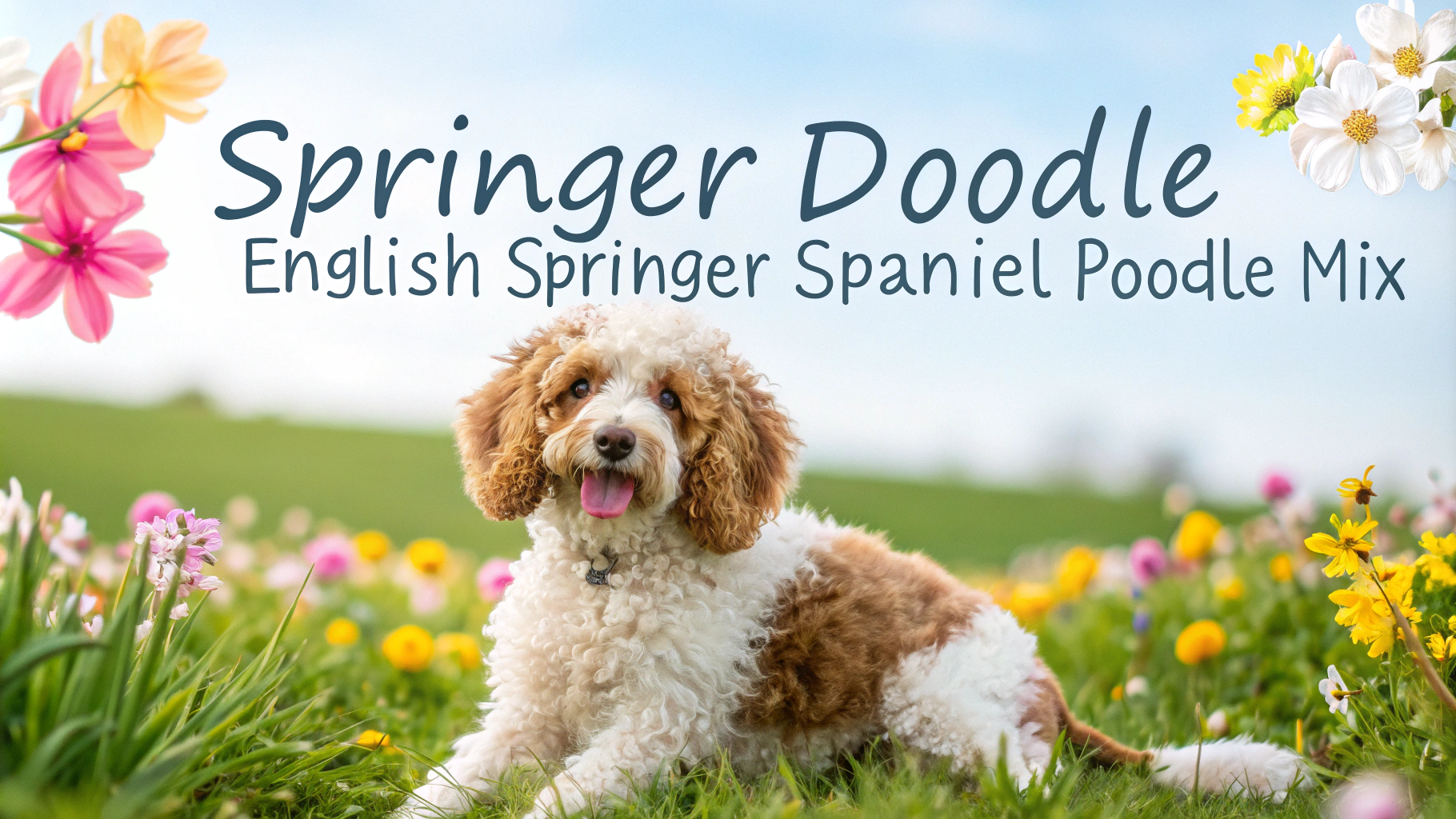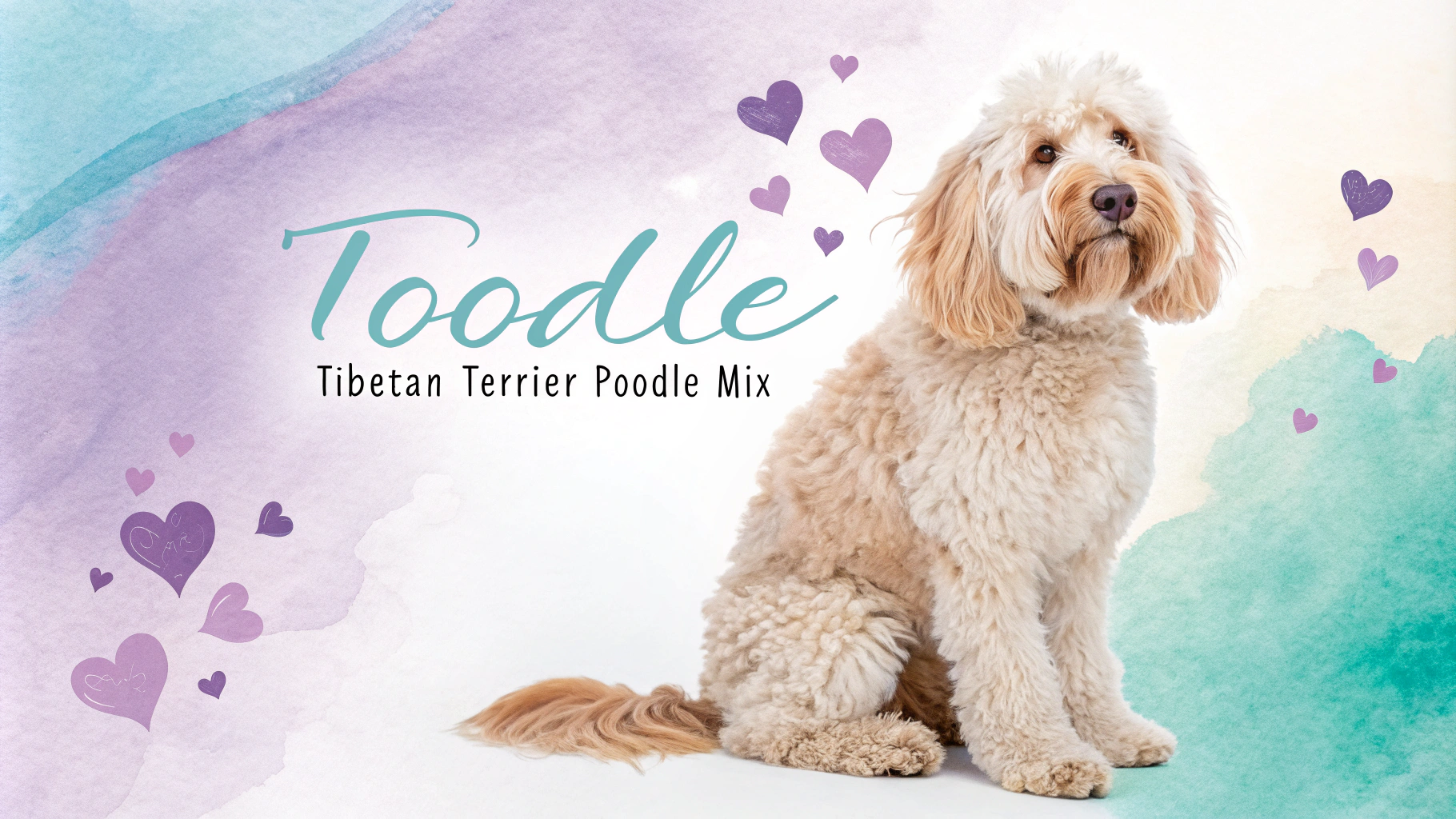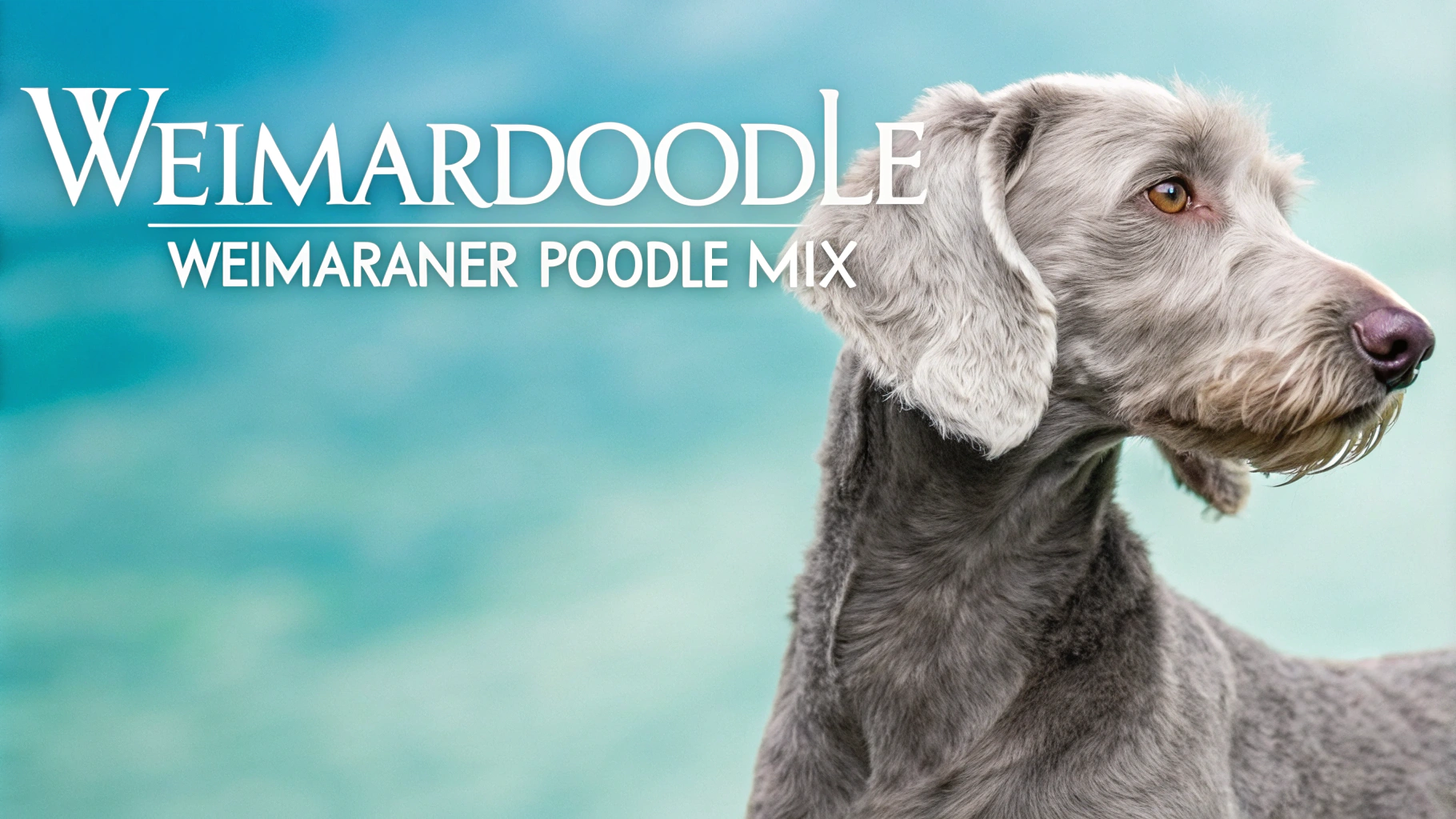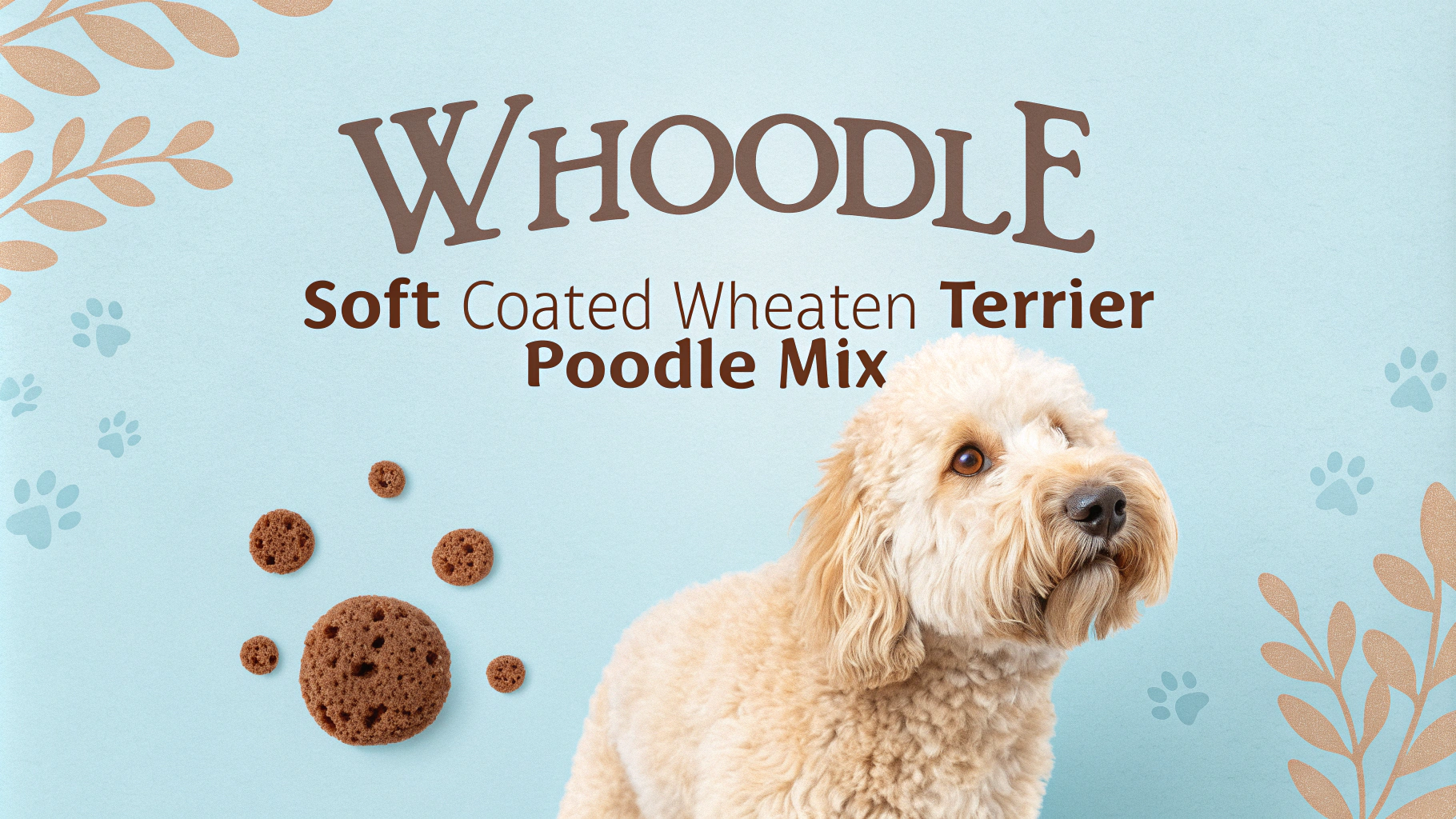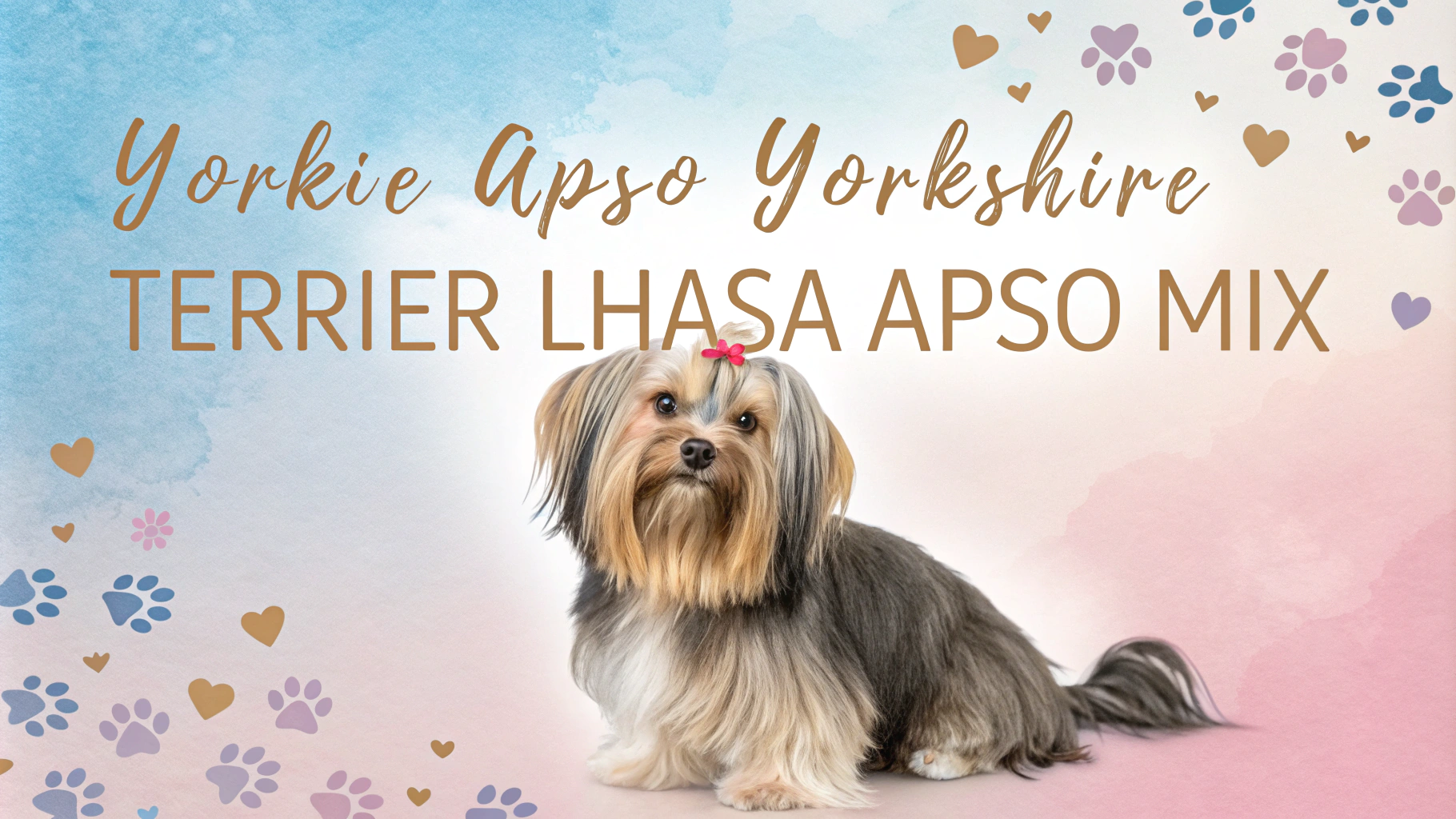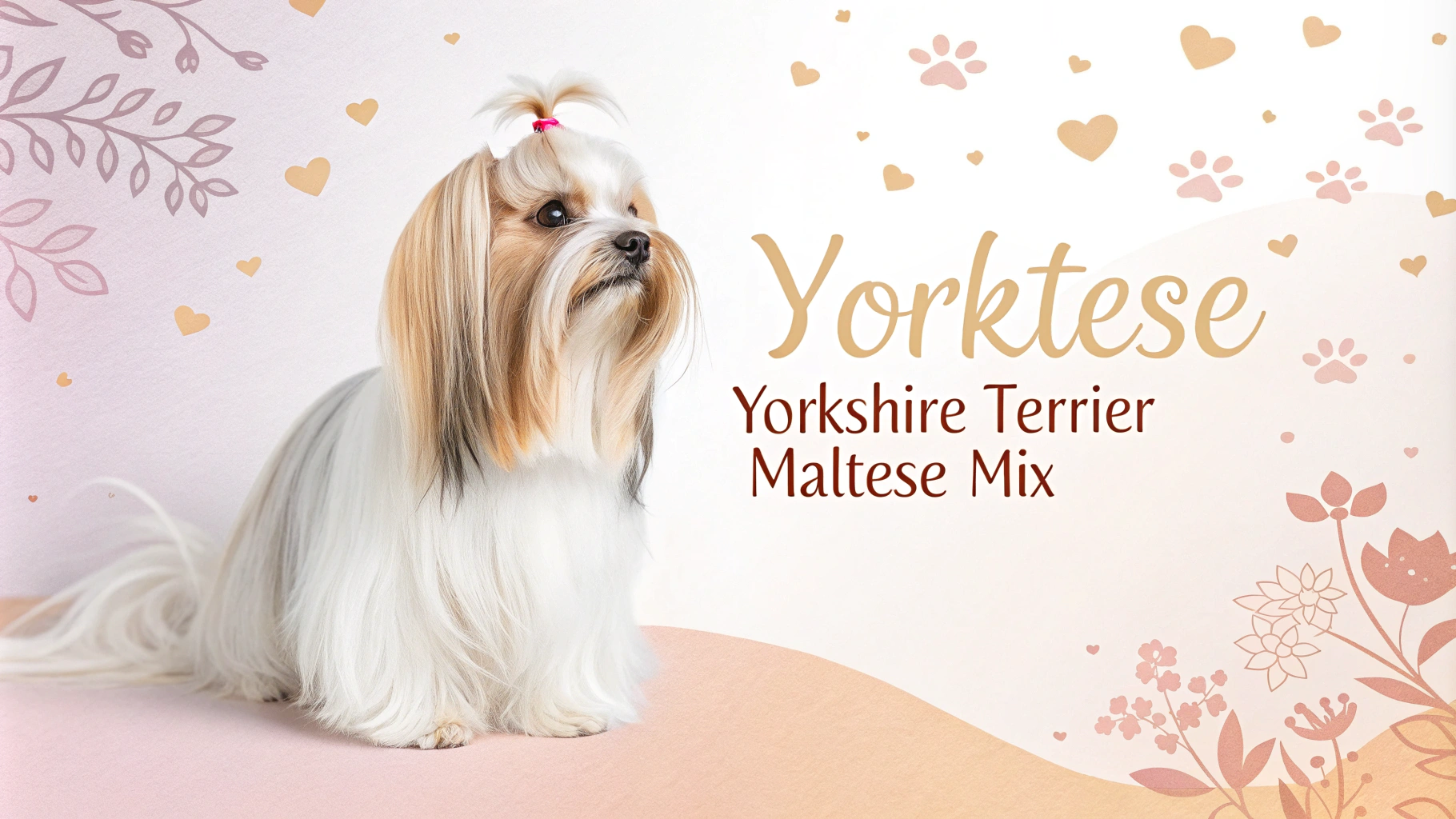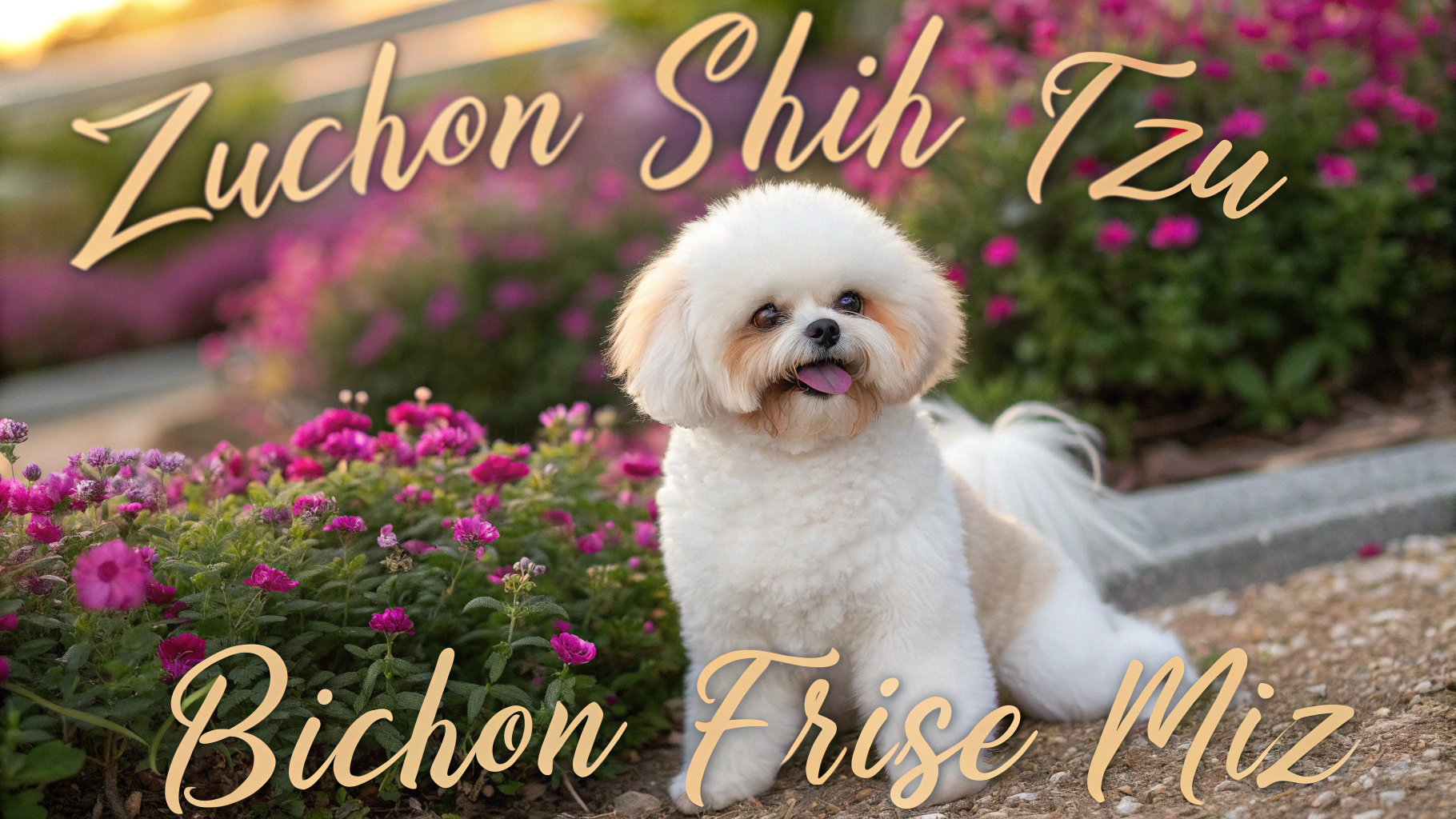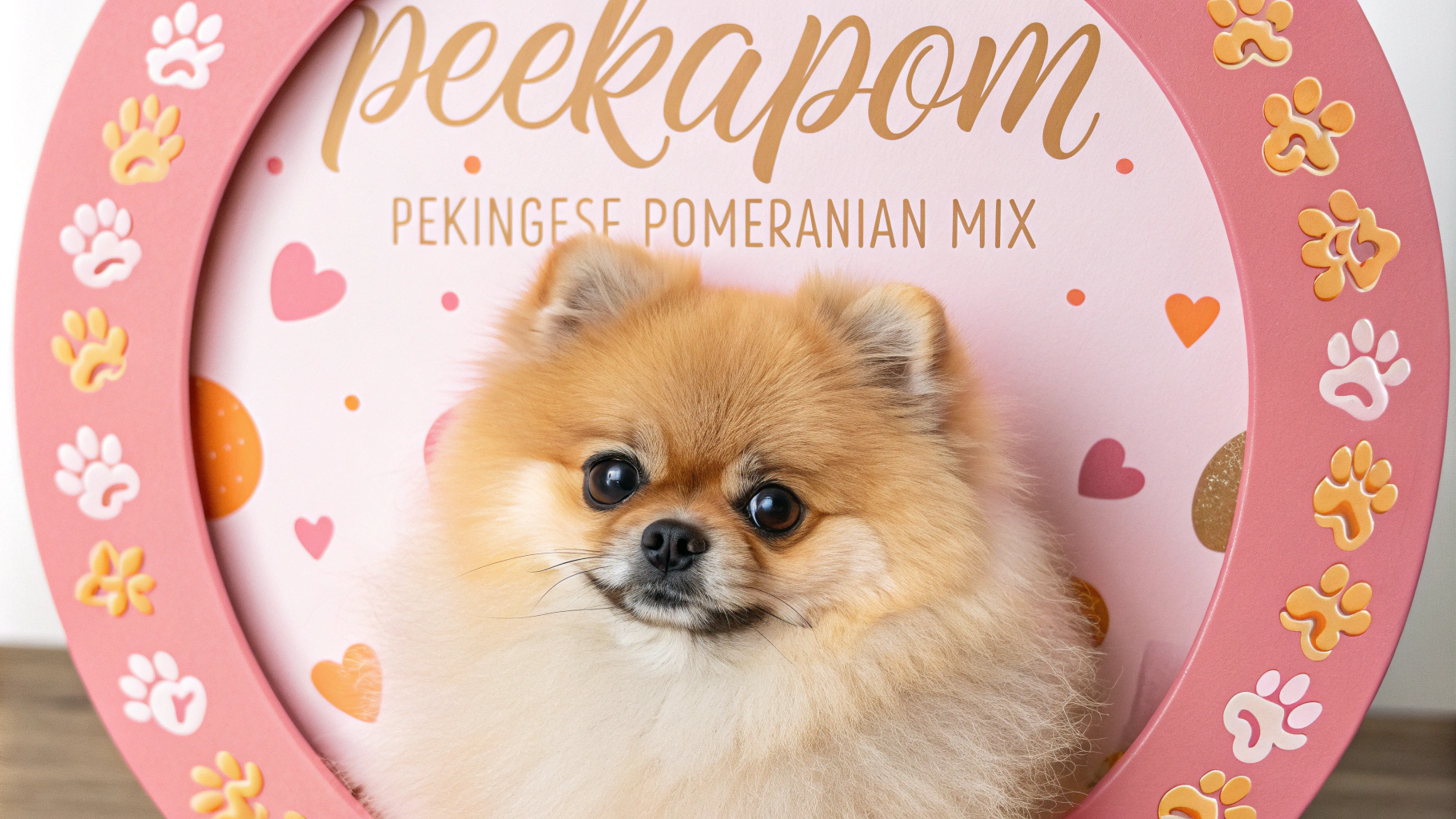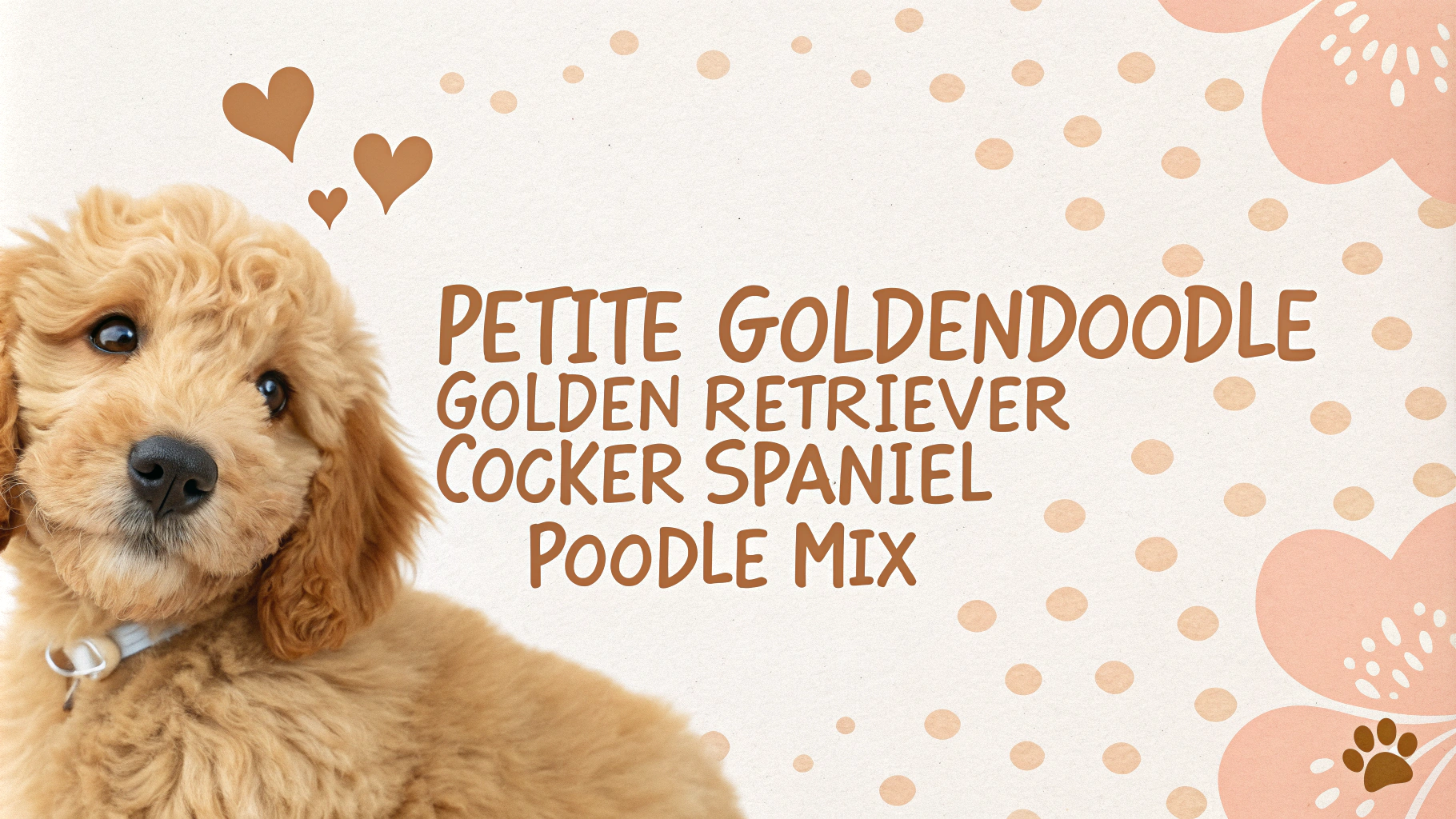The Foxhoodle is a mixed breed dog resulting from crossing a Fox Hound with a Poodle. This unique combination blends the hunting instincts of the Fox Hound with the intelligence and hypoallergenic coat of the Poodle. Foxhoodles are known for their energetic nature, keen sense of smell, and adaptable personalities. While not a widely recognized breed, these dogs are gaining popularity among those seeking an active, intelligent companion with a potentially lower-shedding coat.
Key Facts
- Size: Medium to large, typically 18-25 inches tall and weighing 30-70 pounds
- Coat: Varies from wavy to curly, often low-shedding
- Lifespan: 10-15 years
- Energy Level: High
- Intelligence: High
- Trainability: Moderate to high
- Good with Children: Generally yes, with proper socialization
- Good with Other Pets: Can be, but may have a strong prey drive
- Barking Tendency: Moderate to high
- Shedding: Low to moderate, depending on coat inheritance
Character Traits
Foxhoodles inherit a diverse range of traits from their parent breeds, resulting in a complex and engaging personality. These dogs are typically energetic, intelligent, and curious, combining the Poodle’s eagerness to please with the Fox Hound’s tenacity and determination. They often display a strong prey drive and excellent scenting abilities, making them natural explorers and potentially skilled tracking dogs.
Foxhoodles are usually friendly and social, enjoying the company of their human family members. They can be good with children when properly socialized, but their high energy levels may require supervision around younger kids. These dogs often form strong bonds with their owners and can be affectionate and loyal companions.
Due to their intelligence, Foxhoodles can be quick learners but may also display some stubbornness, especially if they inherit more of the independent nature of the Fox Hound. They typically require mental stimulation and can become bored or destructive if not given enough attention or exercise. Foxhoodles may also have a tendency to bark, particularly if they inherit the Fox Hound’s “voice.”
While generally friendly, Foxhoodles may be reserved with strangers, making them good watchdogs. Their hunting instincts can lead to a strong chase drive, so early socialization and training are essential, especially if they will be living with smaller pets. Overall, Foxhoodles are versatile dogs that can adapt to various lifestyles, provided they receive adequate exercise, mental stimulation, and consistent training.
History & Origins
The Foxhoodle is a relatively new mixed breed, and as such, it doesn’t have a long-established history. This crossbreed likely emerged in the late 20th or early 21st century, coinciding with the rising popularity of designer dog breeds. The exact origins and the breeder who first intentionally crossed a Fox Hound with a Poodle are not well-documented.
To understand the Foxhoodle, it’s essential to look at the histories of its parent breeds. The Fox Hound, developed in England in the 16th century, was bred for fox hunting and is known for its stamina, keen sense of smell, and pack mentality. The Poodle, despite its association with France, originated in Germany as a water retriever. Poodles are renowned for their intelligence, trainability, and hypoallergenic coat.
The creation of the Foxhoodle was likely an attempt to combine the hunting prowess and scenting abilities of the Fox Hound with the intelligence and low-shedding coat of the Poodle. This mix aims to produce a versatile dog suitable for various activities, from hunting and tracking to being a family companion. While not recognized by major kennel clubs as a distinct breed, Foxhoodles are gaining recognition among mixed breed enthusiasts and those seeking an active, intelligent dog with potentially lower-shedding qualities.
Health Concerns
The Foxhoodle, being a mix of Fox Hound and Poodle, may inherit health issues common to both parent breeds. Potential concerns include:
- Hip dysplasia
- Eye problems (e.g., progressive retinal atrophy)
- Ear infections
- Addison’s disease
- Bloat (gastric dilatation-volvulus)
Regular veterinary check-ups are crucial for early detection and management of these conditions. Responsible breeding practices can help minimize the risk of inherited health issues. It’s important to obtain health clearances for both parent breeds when considering a Foxhoodle puppy.
Exercise Needs
Foxhoodles are energetic dogs that require significant daily exercise to maintain their physical and mental well-being. Recommended activities include:
- Long walks (60-90 minutes per day)
- Jogging or running
- Fetch and other interactive games
- Agility training
- Swimming (if they inherit the Poodle’s love for water)
Mental stimulation is equally important for this intelligent breed. Puzzle toys, scent work, and obedience training can help keep their minds engaged. Without adequate exercise and mental stimulation, Foxhoodles may develop destructive behaviors or become anxious.
Space Requirements
Foxhoodles are medium to large-sized dogs that thrive in environments where they have room to move and explore. Ideal living situations include:
- Houses with large, fenced yards
- Rural or suburban areas with access to open spaces
- Active urban households committed to providing ample exercise
While they can adapt to apartment living if given sufficient exercise, Foxhoodles generally do better in homes with outdoor space. Their hunting instincts may lead them to chase small animals, so a secure fence is essential. Access to safe, off-leash areas for running and playing is highly beneficial for this breed.
Nutrition & Feeding
A balanced diet is crucial for maintaining the health and energy levels of Foxhoodles. Key nutritional considerations include:
- High-quality protein sources (e.g., meat, fish)
- Complex carbohydrates for sustained energy
- Healthy fats for coat health and cognitive function
- Vitamins and minerals for overall well-being
The amount of food should be adjusted based on the dog’s age, size, activity level, and metabolism. Generally, adult Foxhoodles may require 2-3 cups of high-quality dry dog food per day, divided into two meals. Avoid overfeeding to prevent obesity, which can lead to various health issues. Always provide fresh water and consult with a veterinarian for personalized feeding recommendations.
Grooming Tips
The Foxhoodle’s grooming needs can vary depending on which parent breed it takes after more. If the coat is more Poodle-like, it will require regular brushing (2-3 times a week) to prevent matting and tangling. Professional grooming every 6-8 weeks may be necessary to maintain the coat’s health and appearance. If the coat is more Fox Hound-like, brushing once or twice a week should suffice. Regular nail trimming, ear cleaning, and teeth brushing are essential for all Foxhoodles. Bathing should be done as needed, typically every 4-6 weeks, using a mild dog shampoo. Pay special attention to the ears, as they can be prone to infections, especially if the dog inherits the Poodle’s floppy ears. Trim the hair around the eyes and paws regularly to maintain cleanliness and prevent irritation.
Training Approach
Foxhoodles are generally intelligent and eager to please, traits inherited from both parent breeds. However, they can also be independent and stubborn at times, especially if they take after the Fox Hound parent. Early socialization and consistent training are crucial for this mix. Positive reinforcement techniques work best, using treats, praise, and play as rewards. Keep training sessions short and engaging to maintain their interest. Focus on basic obedience commands and leash training early on, as Foxhoodles can have a strong prey drive and may be prone to wandering off if they catch an interesting scent. Patience is key, as they may inherit the Fox Hound’s tendency to be easily distracted by scents. Mental stimulation through puzzle toys and scent work can be beneficial for this breed. Crate training is recommended to provide a safe space and aid in housebreaking. Remember that each Foxhoodle is unique, so be prepared to adapt your training approach based on your dog’s individual personality and needs.
